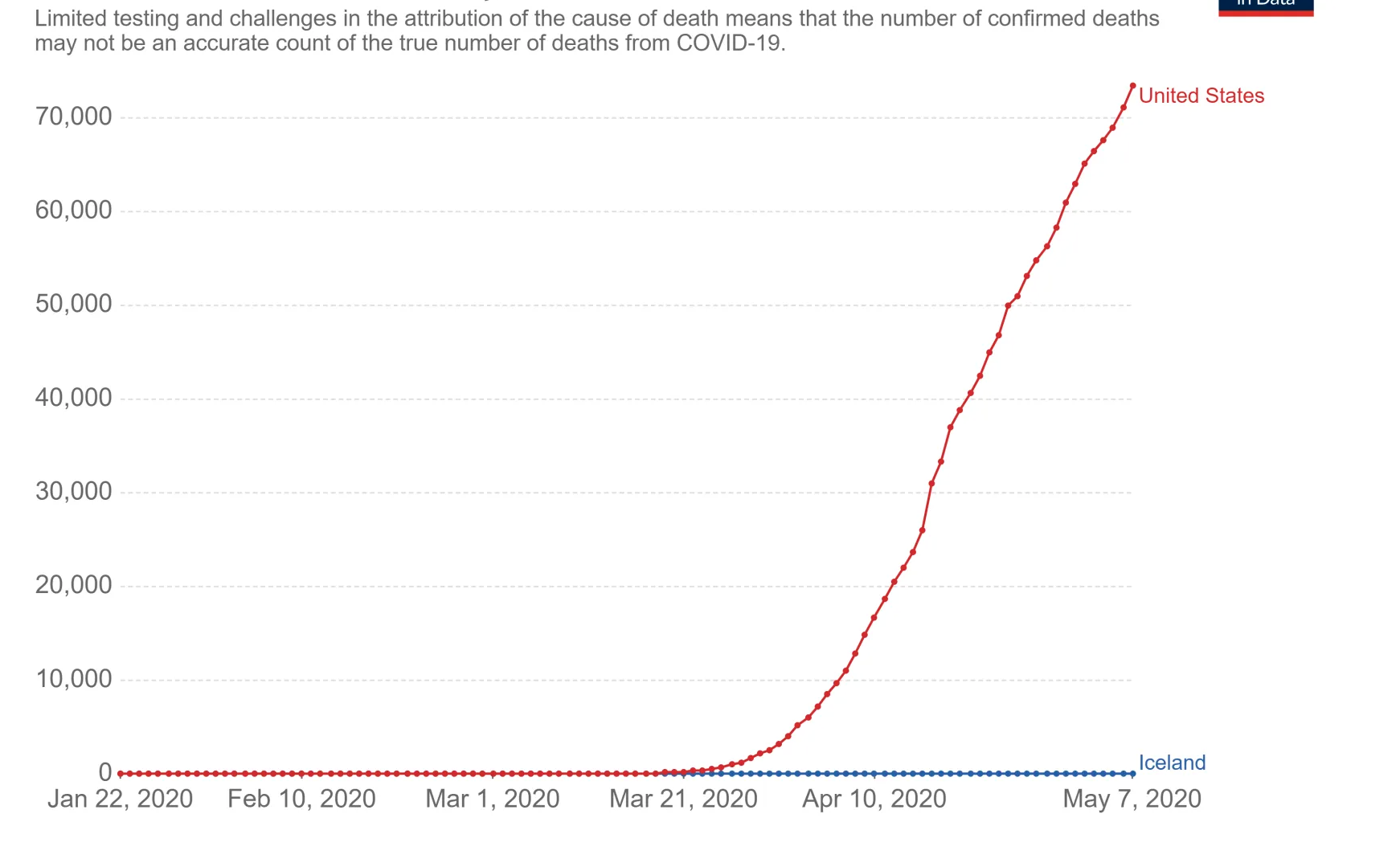 The COVID-19 pandemic has ripped through country after country after first emerging in Wuhan, China in December 2019. It has exposed for all to see, how poorly prepared most countries have been at coping with a highly infectious disease, let alone stamping it out. One country, however, stands out as one that responded early and effectively to the threat. A paper that recently appeared in the New England Journal of Medicine (NEJM) describes the spread of the SARS-CoV-2 virus in Iceland, and how the medical establishment there dealt with the infection.
The COVID-19 pandemic has ripped through country after country after first emerging in Wuhan, China in December 2019. It has exposed for all to see, how poorly prepared most countries have been at coping with a highly infectious disease, let alone stamping it out. One country, however, stands out as one that responded early and effectively to the threat. A paper that recently appeared in the New England Journal of Medicine (NEJM) describes the spread of the SARS-CoV-2 virus in Iceland, and how the medical establishment there dealt with the infection.
Although COVID-19 emerged in Wuhan in December 2019, initially the Chinese government downplayed the threat, silencing doctors and others who tried to sound the alarm. As the disease started to spread internationally, showing up on cruise ships, for example, the leaders of other countries were slow to recognize the magnitude of the threat. Iceland, however, took notice and on January 31, 2020, started administering COVID-19 tests to a sample of its population.
 Initially, all the tests returned a negative result. The first positive test result occurred on February 28, for a person who had just returned from northern Italy, an early COVID-19 hotspot. At first, Iceland’s testing targeted people deemed to be at high risk. These included:
Initially, all the tests returned a negative result. The first positive test result occurred on February 28, for a person who had just returned from northern Italy, an early COVID-19 hotspot. At first, Iceland’s testing targeted people deemed to be at high risk. These included:
- People showing symptoms (cough, fever, body aches, shortness of breath)
- People returning to Iceland from places deemed to be high risk
- People who had been in contact with an infected person
Beyond targeted testing, population screening started on March 13. Samples were collected in Reykjavik from people who were symptom free or people who had mild symptoms, such as those that could be the result of a cold or flu.
Of the 9,199 people who took part in the targeted testing between January 31 and March 31, 7,978 tested negative and 1,221 tested positive. Of the people who took part in the population screening between March 13 and April 1, 10,710 tested negative and 87 were positive. Finally, a group of people that constituted a random sample were recruited and tested between April 1 and April 4. Of these, 2,270 were negative and 13 were positive.
All people who tested positive in any of the three cohorts were questioned about their contacts and were ordered to isolate themselves. Their contacts were then tested, and if found to be positive, were asked to identify their contacts and to isolate themselves in a self-quarantine.
In early March, schools were closed and large public gatherings were banned. After the outbreak peaked in mid-April a phased reopening commenced. On May 4, schools, hair salons, and museums were reopened. This is not to say that things are just like they were back in the good old days of 2019. As of May 6, gyms and pools are still closed. A two-meter social distancing rule remains in place for adults, but children’s activities are back to normal.
Up to May 6, 10 people have died in the entire country, seven of whom were over seventy years old. Considering that Iceland is a tourism Mecca, being the best place in the world to see the Northern Lights, Iceland has fared very well. For this, they can thank the foresight of their political leaders and the members of the medical community, who took decisive action early. Other countries would profit from study of Iceland’s infectious disease response. If there is one thing we can be sure of in all this, it is that SARS-CoV-2 is not the last pathogen capable of sparking a pandemic that we will see in the future. We now have a successful model of what to do. Will the rest of the world take notice and follow Iceland’s lead?
BIO:
Allen G. Taylor is a 40-year veteran of the computer industry and the author of over 40 books, including Develop Microsoft HoloLens Apps Now, Get Fit with Apple Watch, Cruise for Free, SQL For Dummies, 9th Edition, Crystal Reports 2008 For Dummies, Database Development For Dummies, Access Power Programming with VBA, and SQL All-In-One For Dummies, Third Edition. He lectures internationally on astronomy, databases, innovation, and entrepreneurship. He also teaches database development and Crystal Reports through a leading online education provider. For the latest news on Allen’s activities, check out his blog at wwwallengtaylor.com or contact him at allen.taylor@ieee.org.